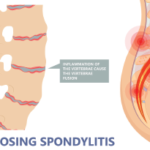NEW YORK (Reuters Health)—The anti-interleukin-17A monoclonal antibody secukinumab improves signs and symptoms in patients with psoriatic arthritis, according to results from Novartis’ FUTURE 2 trial.
In earlier studies, secukinumab has demonstrated superior effectiveness to placebo and etanercept in improving the signs and symptoms of psoriasis.
Dr. Iain B. McInnes from the University of Glasgow in the U.K. and colleagues investigated the efficacy and safety of secukinumab versus placebo in 397 patients with psoriatic arthritis at 76 centers in Asia, Australia, Europe and North America.
At week 24, ACR20 responses were significantly higher with secukinumab 300 mg (54%), 150 mg (51%) and 75 mg (29%) than with placebo (15%), the team reports in The Lancet, online June 29.
The 300-mg and 150-mg doses of secukinumab also brought significantly increased PASI75 and PASI90 rates, along with improvements in DAS28-CRP and quality of life, compared with placebo.
Clinical responses with the two higher doses of secukinumab were maintained through 52 weeks of treatment in patients initially allocated to these treatments.
Adverse events were similar across treatment groups except for a slightly higher incidence of serious adverse events in the secukinumab 300-mg and 75-mg groups than in the secukinumab 150-mg and placebo groups.
“These data provide further evidence that interleukin 17A is an important cytokine in the pathogenesis of psoriatic arthritis, and suggest that secukinumab, by providing an alternative mechanism of action to current treatments, might be a useful future treatment option,” the researchers conclude.
“Although no direct comparison can be made, it does seem that secukinumab provides an equivalent improvement in the musculoskeletal manifestations to that seen in previous TNF-alpha inhibitor studies,” write Dr. Philip Helliwell and Dr. Laura Coates from the University of Leeds, U.K., in a related editorial.
“However, no evidence exists to guide the sequencing of drugs or which therapies are best for subgroups of patients, such as those with asymmetrical oligoarthritis or predominant enthesitis or axial disease,” they conclude.
“From the current perspective, it seems likely that interleukin-17 inhibitors will be used after failure of, or intolerance to, a TNF inhibitor. However, because of the availability of other biological agents, such as interleukin 12/23 inhibitors, and targeted synthetic drugs, such as apremilast, just how these drugs should be used for optimum management of patients with psoriatic arthritis is a key research question,” they add.
The European Commission and the U.S. Food and Drug Administration approved secukinumab for the treatment of moderate to severe plaque psoriasis in January 2015. The drug is also approved in Australia.



